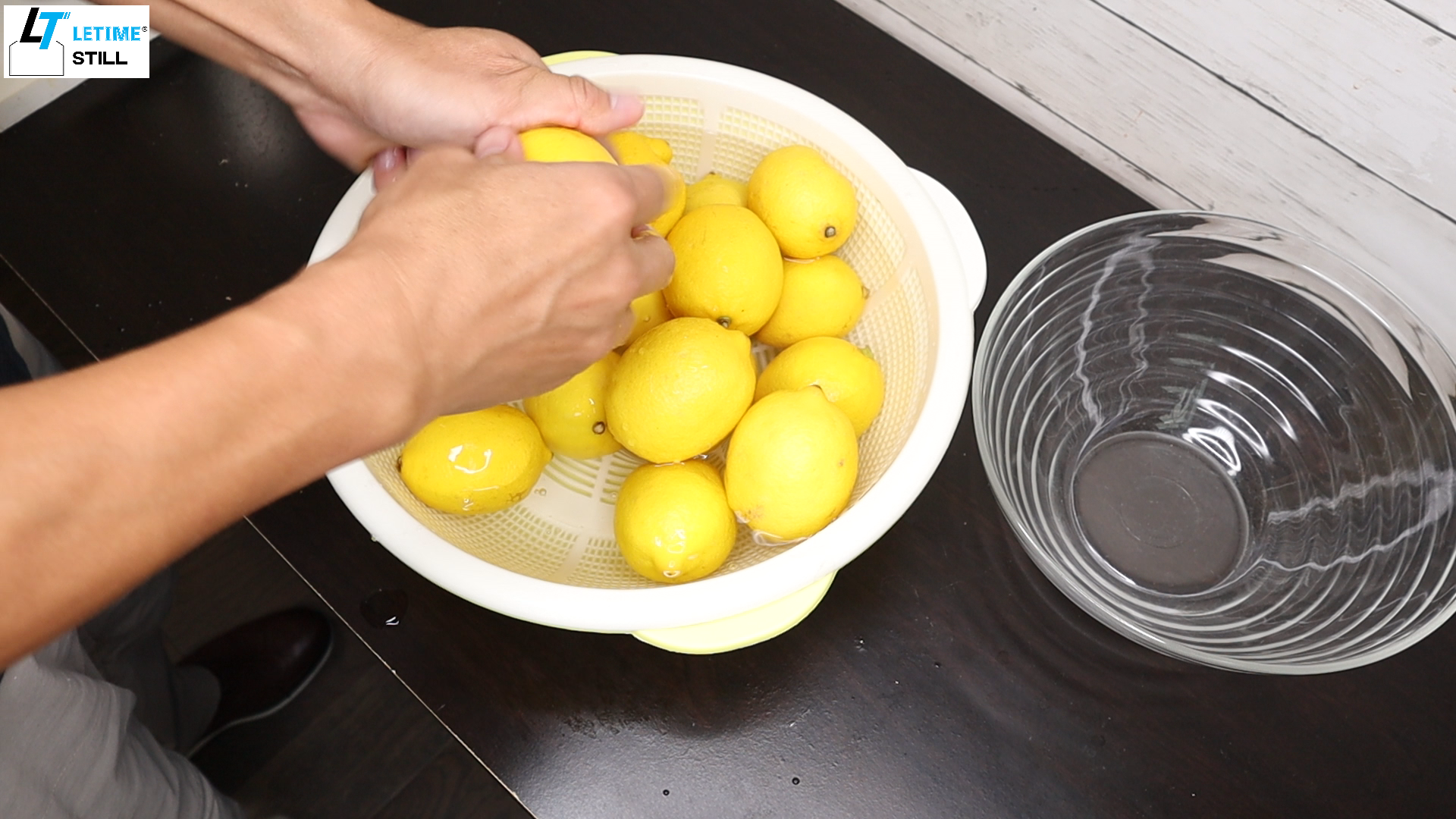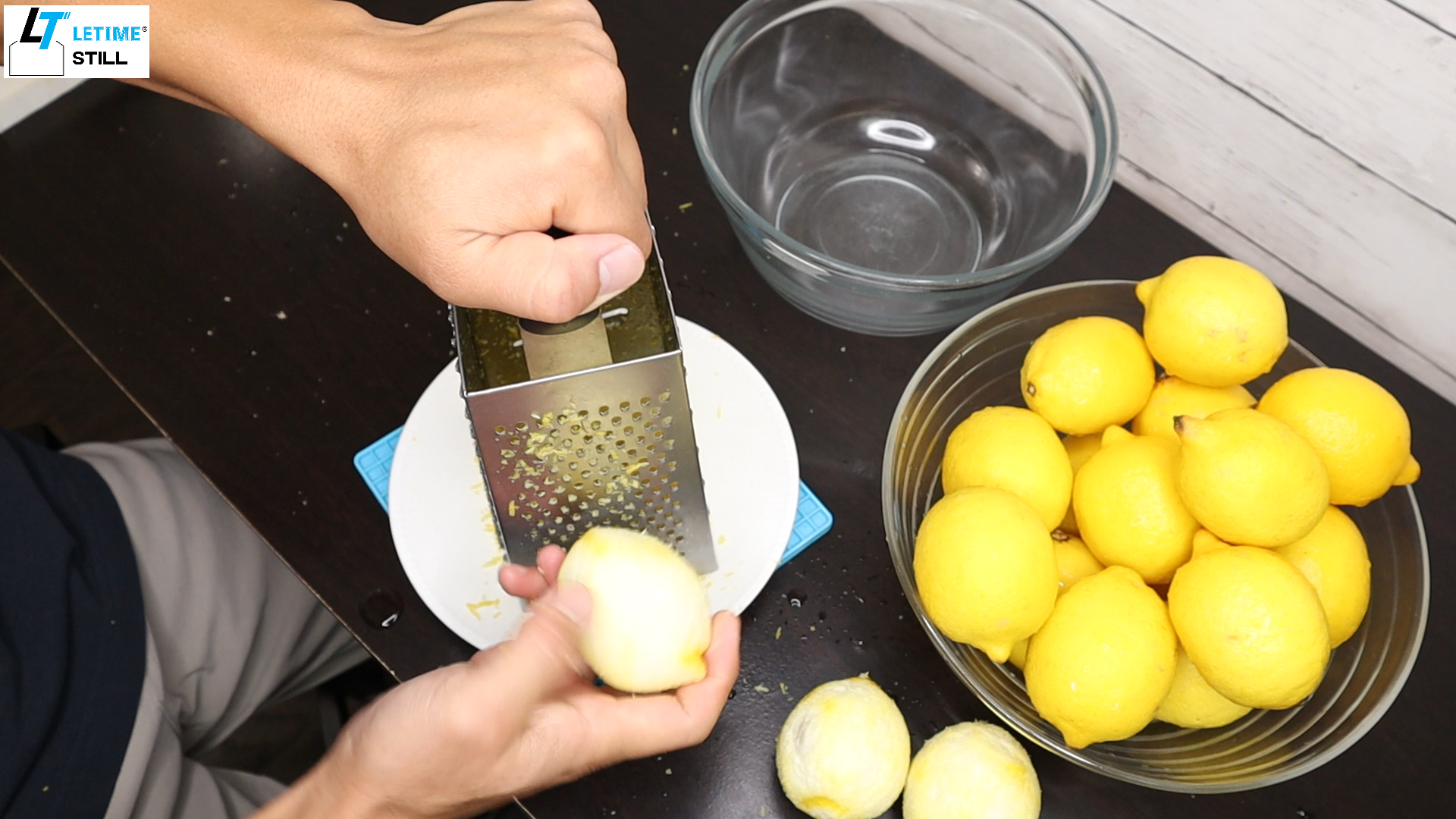How to Make Lemon Essential Oil at Home, its Chemical Composition and Benefits
A recorded history use of lemon is back to 90 BC, which is over 2100 years ago from today. It has been used as medicine in China and India traditional medicine for long time.
Benefits of Lemon Essential Oil based on Laboratory Study:
Relief Stress: Lemon essential oil flavor compounds have a potent stress-alleviating effect. 1
Anti-microbial: Lemon essential oil presented a noticeable bactericidal activity against food-borne pathogens Salmonella paratyphi A. 2
Anti-oxidant: Lemon essential oil displayed an excellent DPPH scavenging ability with an extract concentration providing 50% inhibition (IC50) of 15.056 μg/ml. 3
Chemical Composition of Lemon Essential Oil
Lemon oil contains terpenes (about 94% mainly (+)- limonene), sesquiterpenes, aldehydes (citral, about 3.4–3.6%, and citronellal) and esters (about 1% geranyl acetate). 4
Limonene takes about 70% of the composition. Pinene takes around 10% of the composition.
Comparatively, orange, which belongs to the same family with lemon, has more than 90% limonene within its essential oil. The different chemical composition brings their different flavor.
How to Make Lemon Essential Oil at Home
Essential oil can be extracted from flower, root, leaf, bark or peel. For lemon, the yellow peel contains the highest oil content. Most of oil resides in the thin layer of the outer shell skin.
There are two ways to extract essential oil: cold press and distillation.
Comparatively, distillation is the easier way to extract essential oil at home, and it can make hydrosol at the same time during extraction. New to distillation? Read our blog Distillation 101.
Question is how to distill lemon efficiently? By following the next steps, you can make your own 100% pure genuine lemon essential oil.
Step 1, wash your fresh lemon
Step 2, use a grater to peel off the yellow outer shell of lemon skin. This step has two benefits: (a) improve the extraction yield because most of oil exists in this shell; (b) enhance extraction efficiency because of its smaller pieces.
Step 3, add the lemon skin into LT3000 distiller column. Steam distillation is recommended because it is easier to clean comparing with hydro distillation.
Step 4, set up LT3000 distiller and use an essential oil hydrosol collector and separator to separate oil while collecting the distillate.
Step 5, collect lemon hydrosol and essential oil into different containers and then enjoy them!
Uses of Lemon Hydrosol
1, Skin toner especially for normal and oil skin
2, House cleaning. Add it into steam mop to clean wood floor or tiles.
Uses of Lemon Essential Oil
1, Make yummy food, such as lemon cake, lemon drink, etc.
2, Air freshener. Add drops into diffuser during a day or before sleep.
—————————————————————————————————————————————————————————————
1, Syuichi Fukumoto, Aya Morishita, Kohei Furutachi, Takehiko Terashima, Tsutomu Nakayama, Hidehiko Yokogoshi, Effect of flavour components in lemon essential oil on physical or psychological stress, Stress & Health, Volume24, Issue1, February 2008, Pages 3-12
2, HaticeYazgana, YesimOzogulb, EsmerayKuleyb, Antimicrobial influence of nanoemulsified lemon essential oil and pure lemon essential oil on food-borne pathogens and fish spoilage bacteria. International Journal of Food Microbiology, Volume 306, 2 October 2019, 108266
3, Anis Ben Hsouna, Nihed Ben Halima, Slim Smaoui & Naceur Hamdi, Citrus lemon essential oil: chemical composition, antioxidant and antimicrobial activities with its preservative effect against Listeria monocytogenes inoculated in minced beef meat. Lipids in Health and Disease, volume 16, 2017, Article number: 146
4, William CharlesEvansBPharm BSc PhD DSc FIBiol FLS FRPharmSRevised with the assistance ofDaphneEvansBA MA, Chapter 22 - Volatile oils and resins, Trease and Evans' Pharmacognosy (Sixteenth Edition), 2009, Pages 263-303







